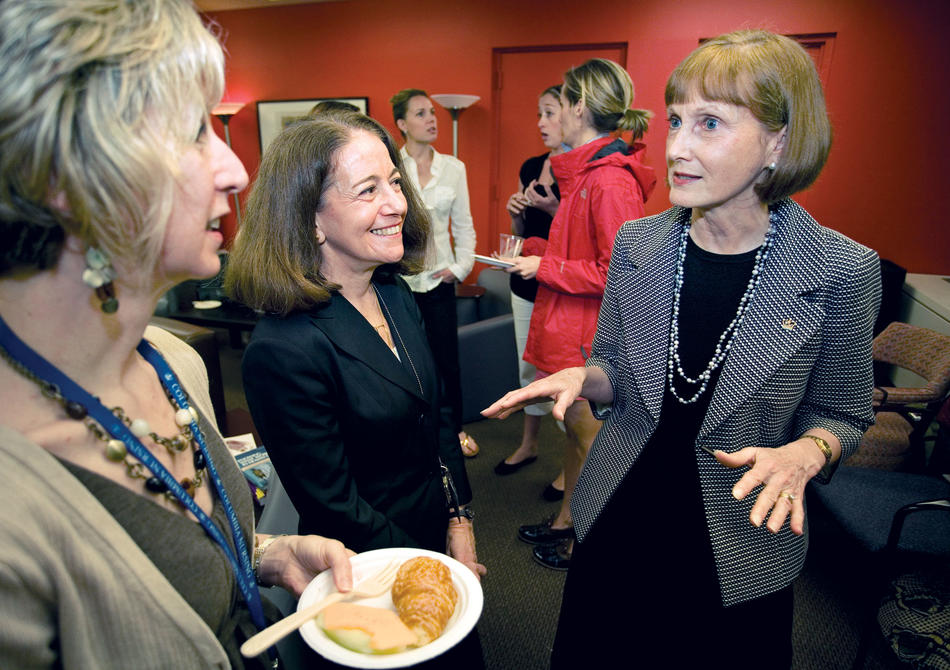Bobbie Berkowitz, a nursing professor at the University of Washington and a public-health researcher, has been selected as the next dean of the Columbia School of Nursing. She starts her new job September 1.
Berkowitz began her career as a nurse in the early 1970s in her home state of Washington. She quickly rose to leadership positions in local and county public-health departments. In 1993, she was appointed deputy secretary for the Washington State Department of Health. Berkowitz’s most formative professional experience, she says, was directing the national offi ce of the Turning Point Initiative from 1997 to 2006, a program funded by the Robert Wood Johnson Foundation to promote public health. Berkowitz and her staff traveled across the country, facilitating new collaborations among public-health workers and schoolteachers, business leaders, and clergy in 23 states. “The idea was that the underlying causes of poor health are complex,” Berkowitz says, “and that they cannot be addressed by the public-health system alone.”
Berkowitz has published dozens of journal articles, most of them about how public-health organizations can best collaborate with other community groups. She is also an outspoken advocate for increased government investment in health education, preventive medicine, and other public-health initiatives, which, she points out, receive just one penny for every dollar spent on health care in the United States. Berkowitz has written extensively about how public-health services benefit the poor. She promotes awareness of these issues as director of the Center for the Advancement of Health Disparities Research at the University of Washington’s nursing school, where she has taught since 1996; she chaired the school’s department of psychosocial and community health from 1998 to 2004.
As an educator, Berkowitz says that she aims to inspire nurses to push for better health-care delivery and public policy, as informed by their close contact with patients and their families. “I want nurses to have questioning intellects,” she says. “I want them to go into work every day and to be thinking: Is this the right way to do things for my patients, for their families, and for this community? Is the system working? Could it be better? I don’t want them to accept the standard ways of practicing medicine, but to be always thinking critically about how to improve care for those patients.”
Berkowitz will succeed Mary O’Neil Mundinger ’81PH, who announced last fall that she would step down after 24 years as dean. Mundinger is credited with building the School of Nursing into one of the country’s preeminent institutions of nursing education. The school is widely recognized for its clinical doctoral degree program, which was the first of its kind when established in 2004. It trains “advanced-practice nurses” who perform duties once reserved for doctors, like diagnosing illness and prescribing medication. Mundinger will remain on the school’s faculty, as the Centennial Professor in Health Policy.
“Columbia has set the gold standard for education of advanced practice nurses in this country,” Berkowitz says. “It was Mary who initially got everybody in the field thinking about what nurses are capable of.” Columbia’s nursing school also offers a PhD program that trains nurse-scholars who conduct research on the profession and help implement best practices in hospitals and other clinical settings. Says Berkowitz: “I’m committed to making sure that Columbia continues to produce nurses who perform at the peak of their abilities.”



